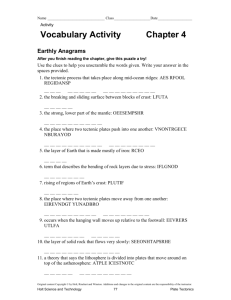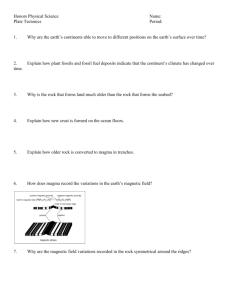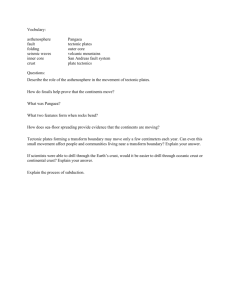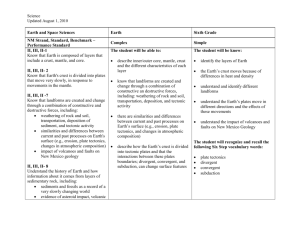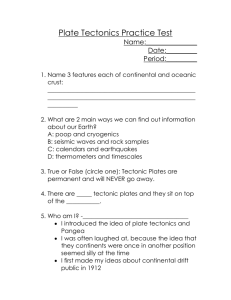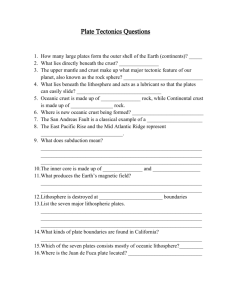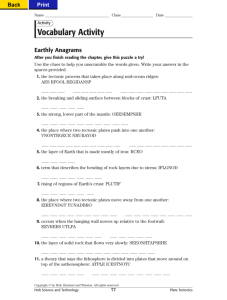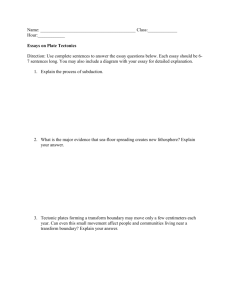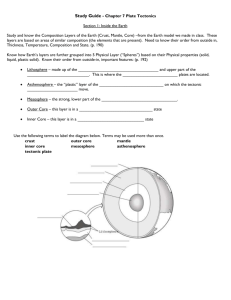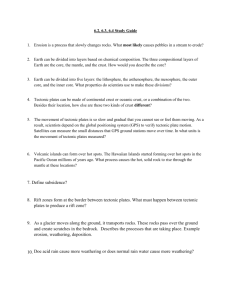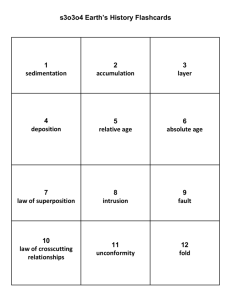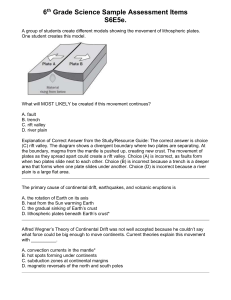Tectonic Plates
advertisement
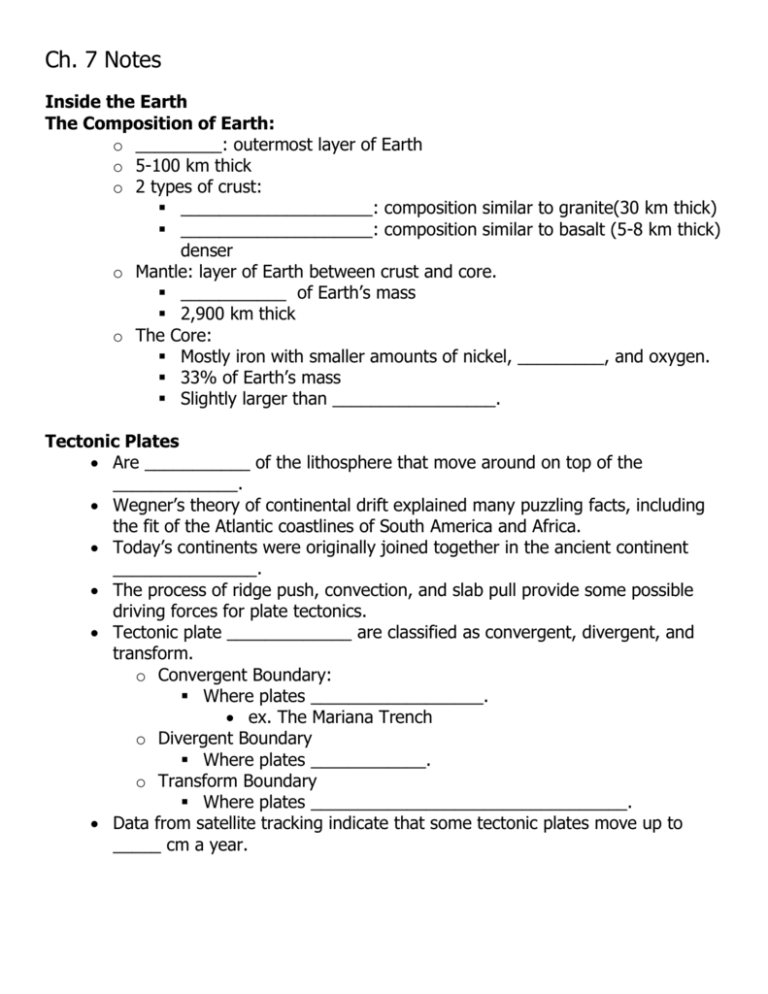
Ch. 7 Notes Inside the Earth The Composition of Earth: o _________: outermost layer of Earth o 5-100 km thick o 2 types of crust: ____________________: composition similar to granite(30 km thick) ____________________: composition similar to basalt (5-8 km thick) denser o Mantle: layer of Earth between crust and core. ___________ of Earth’s mass 2,900 km thick o The Core: Mostly iron with smaller amounts of nickel, _________, and oxygen. 33% of Earth’s mass Slightly larger than _________________. Tectonic Plates Are ___________ of the lithosphere that move around on top of the _____________. Wegner’s theory of continental drift explained many puzzling facts, including the fit of the Atlantic coastlines of South America and Africa. Today’s continents were originally joined together in the ancient continent _______________. The process of ridge push, convection, and slab pull provide some possible driving forces for plate tectonics. Tectonic plate _____________ are classified as convergent, divergent, and transform. o Convergent Boundary: Where plates __________________. ex. The Mariana Trench o Divergent Boundary Where plates ____________. o Transform Boundary Where plates _________________________________. Data from satellite tracking indicate that some tectonic plates move up to _____ cm a year. Theory of Plate Tectonics Theory that the Earth’s lithosphere is divided into tectonic plates that move on top of the ____________________. What causes the plates to move? o _____________ is the hot material deep within the Earth rising to cool. o Like a big lava lamp! Deforming the Crust When rocks change shape due to stress, the reaction is called deformation. 2 types of stress: o _____________: when objects are squeezed or collide together. o _____________: when objects stretch or diverge apart. Folding Occurs when rock layers bend due to __________. _______ types of folds: o Anticline o ___________ Faulting Surface along which rocks break and slide past one another. ______________________: hanging wall moves down relative to the footwall. ______________________: hanging wall moves up relative to the footwall (reverse of normal fault) ______________________: occur when opposing forces cause the rock to break and move horizontally. Mountain Building When tectonic plates converge 3 major types of mountains are made. o _______________________: form when rock layers are squeezed together and pushed upwards. o _______________________: form when normal faults cause large blocks of Earth’s crust to drop down relative to other blocks. o _______________________: form when molten rock erupts onto Earth’s surface.
